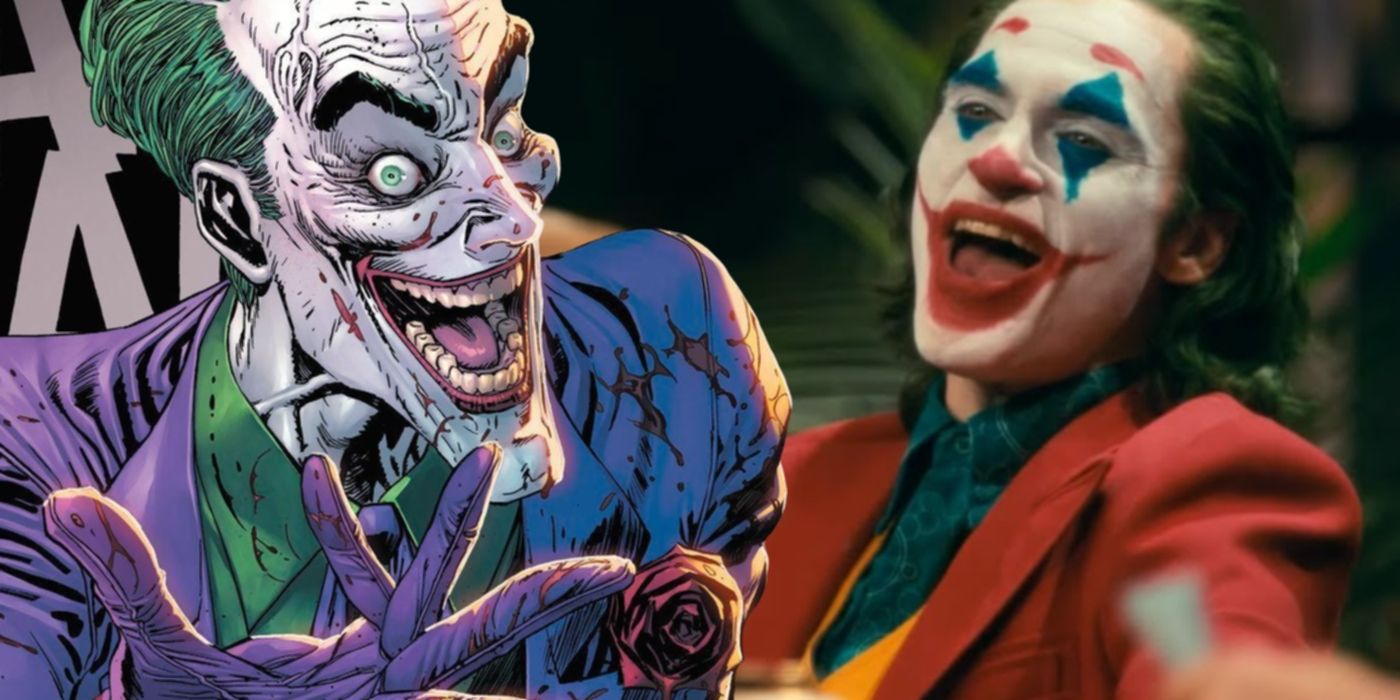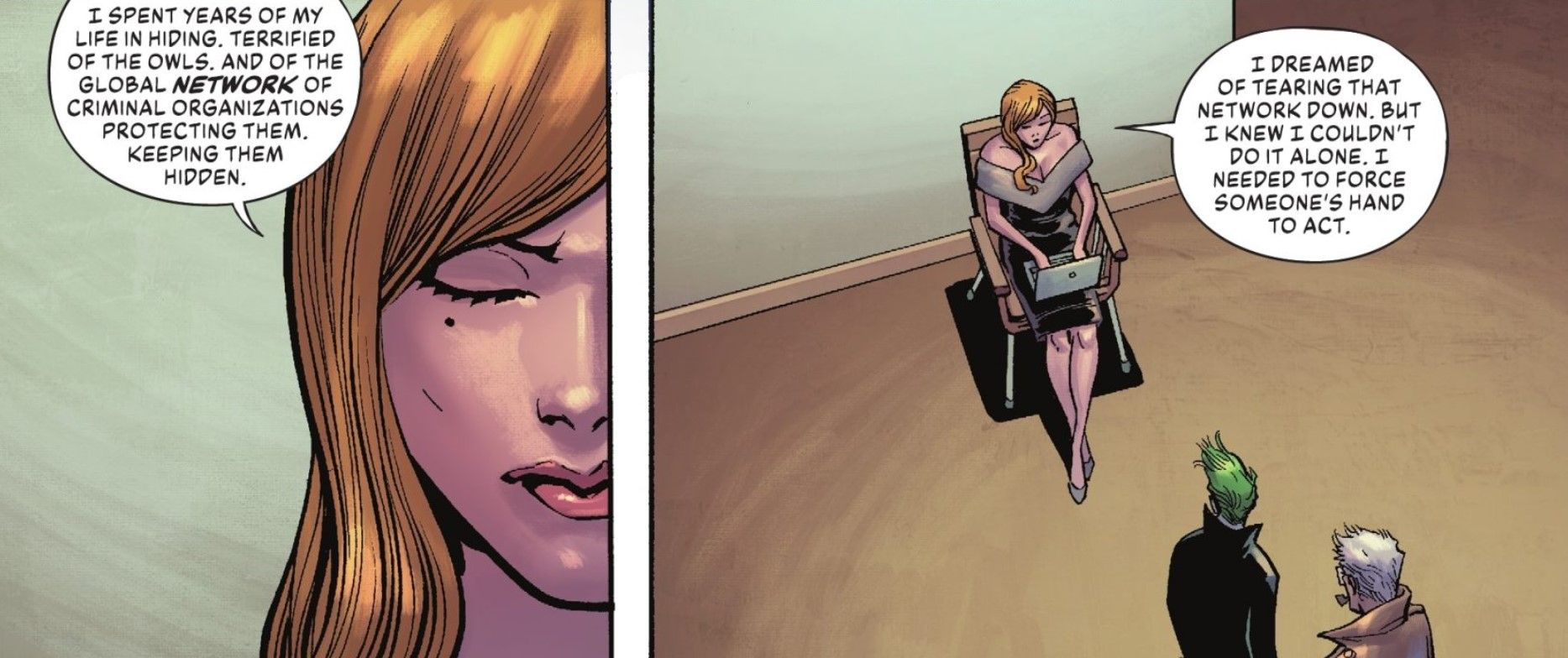It looks like the Joker's new direction in life may be inspired by his film counterpart. Arthur Fleck, the reimagined take on the Clown Prince of Crime, might be influencing the classic criminal for the better.
The new version of the villain was the focus of the 2019 film, Joker, from director Todd Phillips. Instead of embracing the Joker's usual murky past, the film opted to give the clown a name and backstory. Arthur Fleck was a part-time clown and comedian that just wanted to make people laugh. But he inadvertently kickstarts an uprising in Gotham and takes on his Joker identity after being mocked on-air by a local entertainer. While Arthur didn't have a Batman to come into conflict with, this Joker was just as easily able to cause chaos with the slightest effort and even managed to become a symbol of an entire movement.
Despite the major differences between DC Comics' Joker and his cinematic equivalent, it seems that the two are on their way towards having something else in common other than their killer smiles. In Joker #15 by James Tynion IV and Giuseppe Camuncoli, recurring Batman ally Jim Gordon tells the hero that the Joker has found himself at the center of a conspiracy involving the Network, a sinister order of elites. Cressida Clarke, whose father had previously funded the Network, was cast out and Cressida sought to destroy the shadowy organization by using a proxy, which is were the Joker comes in. Clarke teamed up with the villain Bane and manipulated Joker from the sidelines and their efforts were successful, with Joker destroying crucial Network sites.
While Joker spent most of his time as an unwilling pawn in a game he didn't even realize he was playing, the villain eventually understood what Cressida saw in him. Joker's actual power is his ability to create chaos and destruction, and Clarke used that to her advantage to dismantle a society that was bending the system to its will. In the same way that Arthur Fleck became a figurehead for an anarchistic uprising, Joker found his natural talents being used to destroy an established and corrupt order.
Though Joker was a radically different take on the character, the Arthur Fleck role was a unique way of portraying the milieu of the villain. The movie gave audiences a profound character study that, while very entertaining, didn’t exactly match the classic DC Comics’ villain Joker. But that movie gave fans one of the most nuanced versions of the Clown Prince of Crime by showing that his proclivity to chaos can serve a purpose other than just wanton violence. Joker's actions being directed by movements who want to harness his destructive potential to create societal change would be a bold direction for the character in the DC Universe. Arthur Fleck's success gives Joker the opportunity to explore a new direction as a more unexpected agent of change.


